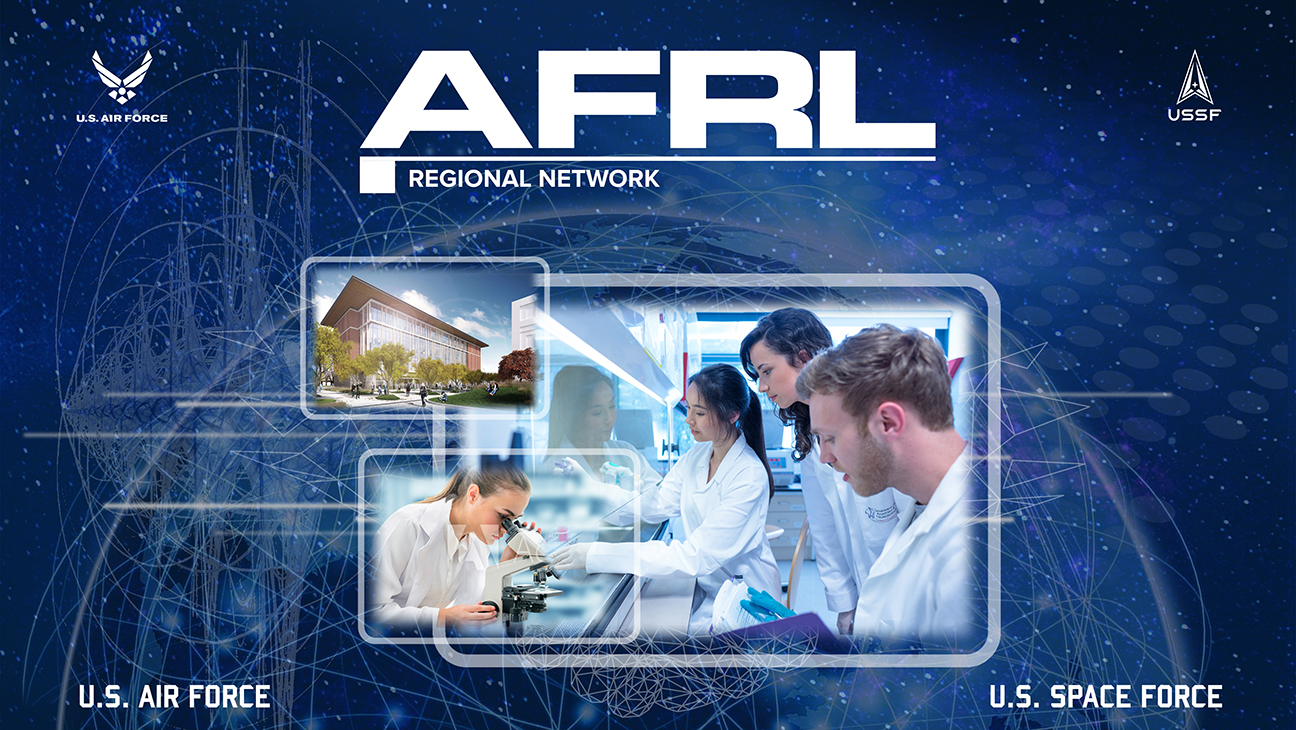AFRL Regional Network Overview
WHAT IS THE AFRL REGIONAL NETWORK?
The AFRL Regional Network is a pilot initiative assembling a new science and technology ecosystem with universities, large and small businesses, other government agencies, and venture capitalists in which partners help the lab research high-risk case studies. AFRL will bring scientists and engineers, allowing partners to connect with defense problem space areas, meaning that the intent is to enable AFRL S&Es to engage and collaborate with these regional ecosystems, working side-by-side with external S&Es.
The AFRL Regional Network program will provide workforce development opportunities for AFRL S&Es who may spend up to six months with network partners working in technology problem spaces at hub locations. AFRL S&Es and partner teams will gain access to resources including unique facilities, equipment, and expertise. All partners in the ecosystem gain a better understanding of differing missions, requirements, and talent pipelines which ultimately facilitates enhanced solutions, more efficient supply chains, and smarter investments for the future.
HOW WILL THIS NETWORK DRIVE SCIENCE AND TECHNOLOGY?
The goal of establishing regional research hubs is to leverage research, translation, and workforce development successes across the country while integrating stakeholders to encourage S&T exchanges and drive innovation. Ultimately, these connections will provide significant benefits to AFRL, the Department of the Air Force, and the Department of Defense. AFRL benefits by gaining access to new technologies and ideas through these collaborative endeavors. This type of direct interaction will further accelerate and advance the translation of science and technology to both the warfighter and commercial markets.
The AFRL Regional Network differs from a traditional consortium since this network focuses on directly engaging AFRL S&Es with the network partners’ S&Es in their environments. In essence, AFRL will work solutions together with network partners rather than request work on the lab’s behalf. Through the network, AFRL will share costs and risks of technology innovation and provide experiential learning opportunities.
HOW WILL THIS NETWORK OPERATE?
The first part of the pilot covers the Mid-Atlantic and Midwest regions with expansion to other regions possible in the future. In March 2022, AFRL awarded Cooperative Agreements to Cornell University (Ithaca, New York) and Purdue University (West Lafayette, Indiana) to serve as AFRL Regional Network partners for the Midwest and Mid-Atlantic regions.

